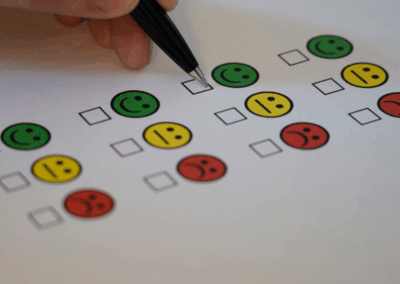A new report on the future of K-12 assessment practice in international schools highlights the changes many international schools are currently making.
The Future of Assessment Report published by ISC Research shares detailed case studies from a breadth of international schools to demonstrate the different stages schools are at and the challenges schools are facing. School size, internet bandwidth, and staff skills have significant influence on the progress international schools are able to make towards assessment change.
However, research conducted for the report suggests that many international schools are now implementing formative assessment to inform and adapt their teaching and learning, rather than waiting for the results of summative assessment. Some schools have taken this further and are now assessing the whole child, gathering data on attendance, wellbeing, attitudes to learning, development of soft skills, and participation in extra-curricular activities as well as learning progress, to identify the factors affecting learning for an individual student.
Digital tools for assessment
The development of effective tech solutions, and the notable advancement of technology skills by educators as a result of online learning during the COVID pandemic, has accelerated a move towards rigorous personalised learning informed by holistic assessment. Of the international schools that participated in the research, 73% now use digital platforms to support internal assessment.
A wide range of digital resources that contribute to formative assessment are valued by international schools, with Google Classroom, Microsoft Teams, SeeSaw, Kahoot! and ManageBac most often cited by schools in the research. However, the report includes several requests from educators to edtech developers. Meenakshi Kilpady, Principal of Dr Sarvepalli Radhakrishnan International School in Malad, India said, “there’s a lot of work going on from [edtech] companies, but the development needs to be able to adjust to the requirements of every school; sometimes the flexibility is not there.”
Matt Koster-Marcon, CEO of digital assessment resource provider, Learning Ladders Education offered important insight from a perspective as both a tech developer and former teacher. He emphasised that technology must not be seen as the answer to assessment, but rather a tool to support the future of assessment: “Assessment is the beginning of [a] conversation. It should be an interaction between humans,” he said.
Advice for assessment change
Several educational consultants who support multiple international schools were interviewed for the report and shared their advice.
- Variety in assessment methods: “Don’t be restricted by exams and standardised tests,” said consultant Graeme Scott. “Use a range of assessment methods to allow different types of learners to demonstrate their range of abilities. Assess for understanding, and for the transfer of knowledge, skills, and understandings into situations that students have not seen before; it’s a more authentic measure of ability,” he recommended.
- Reflect on current processes: Trainer and coach, Matthew Savage advised to “begin by doing an audit of success equity and wellbeing equity. This can be a very uncomfortable experience because, invariably, what schools find is that access to visible success and positive wellbeing is not equitably distributed; it can be shockingly inequitable.” But, he said, “conducting that interrogation is a really important start”
- Focus on student engagement: More assessment advice was shared in a podcast supplementing the report that featured Matthew as well as international school leaders Ben Marsh, Director of the International School of Myanmar, and Gabriel Ernesto Abad Fernández, Head of United World College Dilijan in Armenia whose schools are both case studied within the report. “We’re trying to see how we can measure engagement, not necessarily outcomes,” said Gabriel in the podcast, who also talked about an alternative assessment model for the IB Diploma that UWC and the IB are currently working on.
- Present data in an accessible way: Ben described the assessment strategy that his school is taking, explaining that technology has been paramount to achieve this. “Now we have students who have their own dashboards; they can go in and they can look at their own data. Our teachers can look at cohorts. We can look at schoolwide data. I can’t imagine moving [assessment] forward without using technology,” he said.
During the podcast, the presenters also discussed assessment improvement options for schools with limited resources. The free podcast is part of the Heads Up series from ISC Research.



